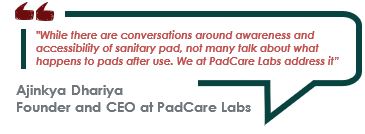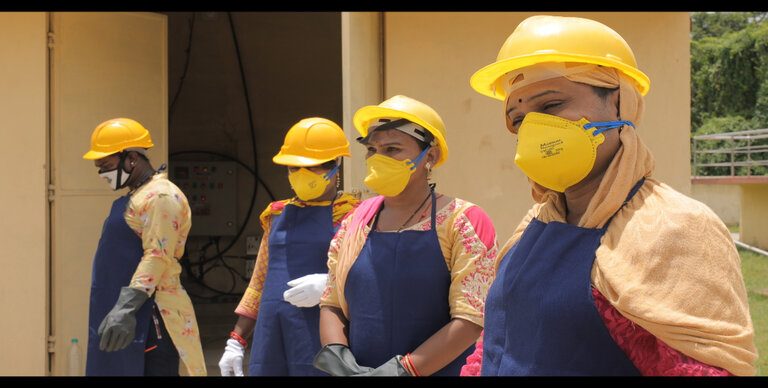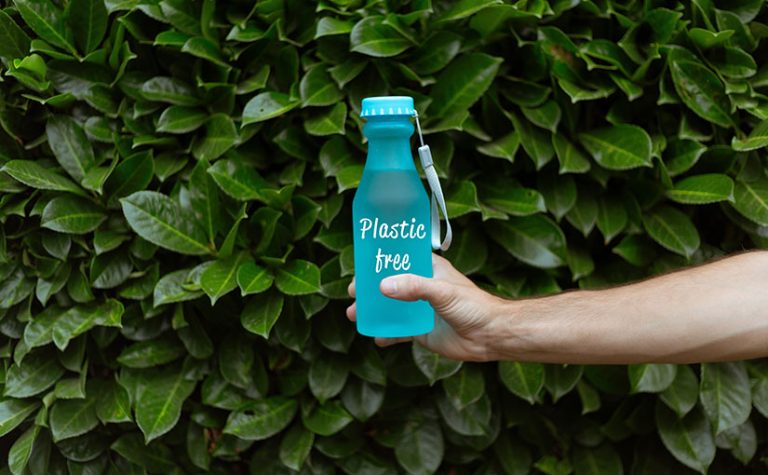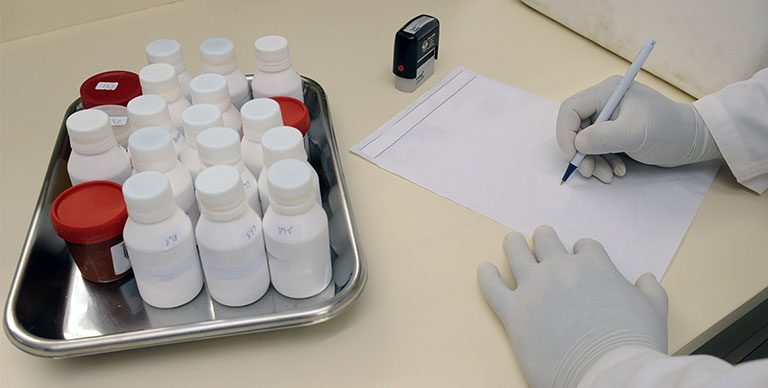Bringing MHM from the Periphery to the Core WaSH Agenda | #ItsTimeForAction
Bringing Menstrual Hygiene Managment (MHM) into the mainstream WaSH agenda – #ItsTimeForAction
Menstrual Hygiene Management (MHM) can’t wait for the COVID-19 pandemic to end. It is time to bring it from the periphery to the core WASH agenda by accelerating action, catalyzing capital, alliances and innovations.
Over 1.9 billion women and girls globally menstruate between two and seven days a month[1]. While menstruation is a normal and healthy part of women’s life, Menstrual Hygiene Management (MHM) remains a neglected and peripheral component of WASH that affects the life course of many women and girls worldwide. It is estimated that around 500 million women and girls globally face constraints in their needs to manage their menstruation well (i.e. approximately one-fourth of the global female population of reproductive age[2]). The key barriers faced by these menstruating women/girls include lack of awareness, societal taboos, low access to affordable high-quality menstrual products, and limited access to well-managed Water, Sanitation, and Hygiene (WASH) infrastructure. This results in poor MHM and negatively impacts women’s empowerment, education, health, environmental, and economic outcomes.
The situation is not different in India, which currently has over 355 million menstruating women and girls, with millions facing a significant barrier to the comfortable and dignified experience of menstrual health. In addition to this, the global pandemic (COVID-19) has also created a severe disruption in the production and distribution of MHM supplies, largely due to physical distancing norms and re-purposing of manufacturing plants for Personal Protective Equipment[3]. Additionally, it has also reduced the accessibility and affordability of available MHM supplies due to a reduction in available income and mobility restrictions. Although a lot of impetus has been given to hygiene for hand washing during the pandemic, MHM still features as a peripheral issue.
Current MHM interventions largely focus on the product side; other components of the value chain remain unnoticed
While there is an increased momentum from International donors, the National government, and NGOs to address problems related to menstrual health, the focus and funding have largely been towards creating awareness and improving access to MH products. The current efforts towards MHM are either sporadic and/or lack certain key aspects of the MHM value chain (such as safe and environmental disposal of such products).

In 2017, it was estimated that more than 5.8 billion units (i.e., sanitary pads, tampons, and panty liners) were sold at a value of more than INR 28.6 Billion (US$415 million). With a projected compound annual growth rate of 8%, the market is projected to grow to more than 10.3 billion units with sales exceeding INR37.8 billion (US$643 million) by end of 2021[4].
This presents a huge market opportunity for the private sector, comprising of micro-enterprises, SGBs, small enterprises, and large corporates to address MHM challenges. While, the market is highly concentrated with the few top suppliers such as Procter & Gamble (P&G) and Johnson & Johnson (J&J), innovators, small collectives and growing businesses are also emerging across the MHM value chain. While startups like Aakar innovation, Saathi Pads, Eco Femme are manufacturing biodegradable new-age sanitary napkins; the ones like Saral Designs and PadCare Labs are working to address larger challenges of accessibility and waste management related to MHM.
Although some of these innovators and SGBs have been able to demonstrate a successful model, there are still many that have not been able to commercialize and reach scale.
Some of the key areas that require interventions to enable these businesses to scale up are:
-
- Skill and Capacity Building: The SGBs that rely on scattered supply chain partners; often lack technical and non-technical skills like distribution marketing, sales to function. Although the government of India has undertaken a multi-pronged approach for skill development, an entrepreneurship-focused program to build skills in financial, operational, and management aspects would help these businesses scale.
-
 Access to capital: Most SGBs rely on internal funds, cash from family or friends, and government/foundation grants to launch and initially run their enterprises. They face challenges in accessing finance for further R & D, commercialization, and scale-up. Thus, there is a need for investment from financial institutes and venture capitals in MHM aligned business.
Access to capital: Most SGBs rely on internal funds, cash from family or friends, and government/foundation grants to launch and initially run their enterprises. They face challenges in accessing finance for further R & D, commercialization, and scale-up. Thus, there is a need for investment from financial institutes and venture capitals in MHM aligned business.- Assigning a nodal agency for MHM: At present, there are multiple ministries like the Ministry of Health and Family Welfare, Ministry of Drinking Water and Sanitation, and Ministry of Women and Child Development, involved in managing several MHM programs with multiple department and guidelines. Identifying and assigning one nodal agency would create a streamlined approach to lead the MHM agenda.
-
- Enabling regulatory environment: Menstrual hygiene is a complex issue with shared responsibilities by manufacturers, product users, and regulators. Currently, there are limited standard and monitoring agencies for identifying, supporting, and certifying innovative technologies in the MHM space. A central department or authority can help certify and scale up these innovative and affordable MHM solutions. Additionally, implementation of extended producer responsibility (EPR) would encourage safe collection and disposal mechanisms thereby supporting the SGBs working in this space to scale up the operations.
-
- Awareness: Although various government departments and big manufacturers are perusing large-scale strategies to promote awareness on MHM, there is limited awareness among users about the availability of new MHM solutions. Innovative solutions like biodegradable pads, menstrual cups, tampons, or environmentally sound disposable mechanisms are still limited to specific geography as awareness is a resource-intensive task. A collaborative platform approach by public and private stakeholders can be used to share innovative solutions, a variety of products, best practices, and the safe disposal of MH products.
While these areas need interventions to strengthen the MHM, we can definitely learn and adopt few models/solution successfully implemented in other coutries such as:
– Innovative financing model to catalysing capital toward MHM
KOIS (impact finance fund) along with the French Agency for Development (AFD) and the French Ministry of Foreign Affairs have devised a Development Impact Bond (DIBs) to promote healthy Menstrual Hygiene Management (MHM) practices in Ethiopia and Niger. The objective of this impact bond is to empower women and girls by implementing a holistic Menstrual Hygiene Management programme encompassing awareness raising and access to affordable sanitary products as well as MHM-friendly sanitary infrastructure[5].
–Common platform for discussion and knowledge sharing
A national coordination mechanism exists in Mongolia for discussing MHM, it includes government officials across departments with responsibilities for strategic policy , planning, implementation and coordination of Environmental Health, Health Education and IEC, and Child & Adolescent Health Care. This mechanism is supporting the formative research and pilot activities under the UNICEF’s WinS4Girls programme for advocacy and capacity building on Menstrual Hygiene Management through Water, Sanitation and Hygiene in Schools Programs’ (WinS4Girls)[6].
–Enabling policy environment
In Kenya, the Ministry of Health published MHM policy that encourages private sector participation and public-private collaboration. This will facilitate sustainable menstrual hygiene management solutions by promoting investment and innovation to develop effective menstrual waste management systems for storage, collection, transportation, treatment and disposal. The policy also talks about instituting effective M&E systems at all levels to ensure coordinated and sustained improvement of MHM[7].
We believe that these interventions would form the cornerstone for the development of an enabling ecosystem that will aid in accelerating these businesses to participate across the MHM value chain, thereby creating meaningful impact.
To know more about this space and Intellecap’s broader work in Water, Sanitation & Hygiene (WaSH), write to us at bettersanitationcollective@intellecap.net.









